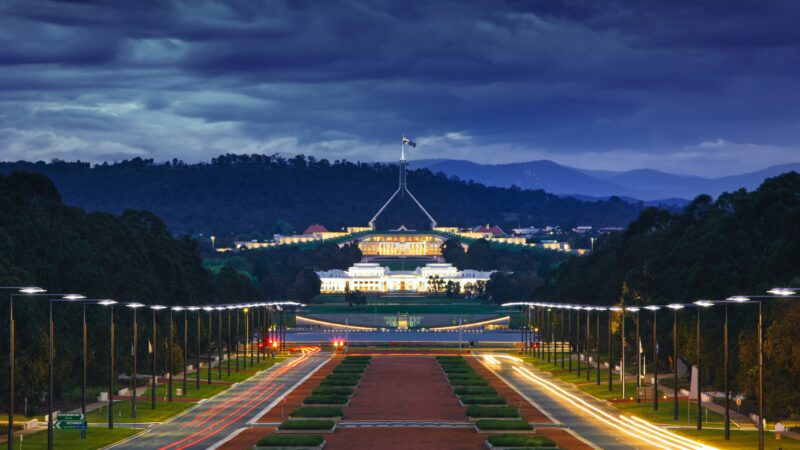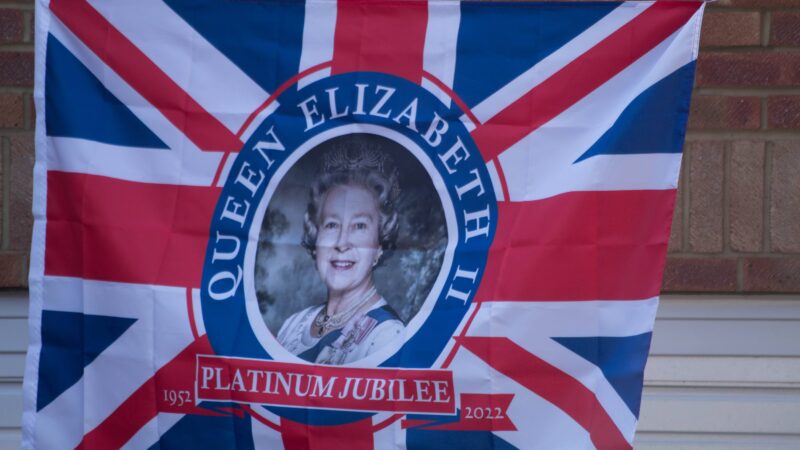The Anglo-American Alliance: Neither Special Nor Subserviant
The ongoing crisis between Ukraine and Russia has once again put into the limelight the strong Anglo-American alliance in foreign affairs. Both the United Kingdom and United States have been resolute in their efforts to avert a crisis by diplomatic dialogue and agreement. Their rhetoric has also been aligned in telling Putin to back down and warning of a “barrage of sanctions” for Russia’s invasion of Ukrainian sovereign territory. These threats have been backed up by the severe sanctions imposed against individuals linked to Putin’s regime.
The alignment of actions by the US and the UK against Russian aggression has given credence to two different views about the nature of the Anglo-American alliance. First, that Britain is a lapdog doing everything that the greater power America tells them to do. Secondly, that the alliance is simply a restatement of the ‘special relationship’ between Britain and the United States because of shared values and principles. This dichotomous view of the Anglo-American alliance misses the Archimedean point; the Anglo-American alliance is contingent on shared domestic and foreign interests and the commonality of these interests is not eternal.
The Anglo-American alliance has a long history beginning with the ‘great reproachment’ (1895-1915), where both countries’ interests aligned leading to the alliance in the First World War. Despite the United States’ isolationism after the Great War, the Second World War brought the two countries together again in opposing Fascism and Communism leading to Winston Churchill’s in 1946 describing the alliance as the ‘special relationship.’
The ‘special relationship’ has seen the US and the UK standing side by side during the Cold War, Gulf War and the War on Terror. Hence, it shouldn’t be surprising that the US and UK have acted together and within the same foreign policy line during the Russia-Ukraine crisis. Furthermore, the level of intelligence, military and economic cooperation is unparalleled between major powers in the international sphere. The latest example of this cooperation is the security pact between Australia, the United Kingdom and the United States known as AUKUS in response to the growing power of China in South-East Asia.
This strong alliance between countries is also reflected in the strong relationship between US presidents and British prime ministers. The most notable example is the relationship between Ronald Reagan and Margaret Thatcher. Leaders who shared the same political and philosophical outlooks and had a common disdain for communism. Similarly, the ‘bromance’ between Tony Blair and George W. Bush particularly in relation to the Iraq War is reflective of how strong an alliance can be when both leaders get along. Simply being political soulmates, however, is not a necessary prerequisite for a strong relationship.
This strong relationship between countries and leaders has also resulted in accusations that Britain is America’s lapdog adopting policy positions to please the United States. Since the UK has usually followed American foreign policy positions.This is, once again, an overly simplistic view of British Foreign Policy. We only need to look into the modern history of the Anglo-American alliance to see these two countries disagreeing when their national interests are at loggerheads . For example, British and American interests collided in the 1956 Suez crisis when President Eisenhower forced Britain to back down in its intervention in Egypt, Harold Wilson’s refusal to send British troops to Vietnam, David Cameron’s approach to China and the US invasion of Grenada. These examples aren’t reflective of Britain’s lapdog status or a special relationship, but of a realistic relationship between two powers.
The Anglo-American alliance is strong because both countries share many interests, namely, security and free trade. Crucially it is also a pragmatic alliance, where both countries will not entirely agree on everything since foreign policy is directed at maximising the interests of the state. This maximisation of interests leads both countries to take the path that best suits their interest. If the UK’s and US’s interests coalesce or not this merely reflects the volatile nature of foreign affairs.
The alliance should not be viewed as a special relationship nor as an alliance where the lesser power unquestioningly follows the greater power. Understanding this is vital to demonstrating the alliance’s significance to the preservation of peace, security and economic prosperity domestically and internationally. Hence, the strong ties between the US and the UK will continue to be pivotal to coordinating the west’s response to the ongoing war in Ukraine. In short, The United States and the United Kingdom are partners, but it’s time to have a more realistic view of their relationship instead of categorising it as either special or subservient.
Ojel Rodríguez Burgos is a Policy Fellow of The Pinsker Centre, a campus-based think tank which facilitates discussion on global affairs and free speech. The views in this article are the author’s own.










Identity Politics in the Conservative Party
The leadership election has brought about a wave of Conservatives flexing about how diverse and inclusive the Conservative Party is compared to Labour. Among the first days of the elections, there were endless tweets about how the party has the most diverse leadership election in history.
Andrew Bowie, Conservative MP for West Aberdeenshire and Kincardine tweeted that the reasons why he’s proud to be a Conservative MP include “first trans MP” and “the most diverse cabinet in history.”
The online publication Spiked, released an article on how “The Tory leadership race is the most diverse in history. And this has sent the left into meltdown.”
The founder of Tories for Equality tweeted: “I feel proud that British children today, whatever their race, can look at the talented & diverse slate of conservative leadership candidates & think “I could do that”. I didn’t have that growing up under the U.K. Labour government. Proud of my country & proud of my party.”
This is a new attempt to call the left the real racists while celebrating how greatly diverse the Conservatives are. It appears that too many Conservative party members truly believe that to defeat the libs you must become one. Die a hero or live long enough to see yourself become the villain.
This is not to say that a candidates’ ethnicity and gender may be a key aspect of their campaign. After all, there’s merit to having a story of being an outsider or overcoming a struggle related to their identity. However, these MPs have been completely tokenised by those on the right. It doesn’t matter what they’ve done to these identity obsessed Conservatives, as long as their identity is good optics. And despite the attempted revision of history, this is not new for the Conservative Party.
The Conservatives have ridiculed the Labour Party’s anti meritocratic all female shortlists. However, it appears that the Conservatives are also guilty of identity politics hiring…
Under Cameron’s government, there was an active attempt to make the government less pale, male and stale. From David Cameron’s own account in a recent article, he wrote for The Times:
“I immediately froze the selection of Conservative candidates. I said that from our broader candidates’ list we would draw up a priority list, of which half would be female and a large proportion would be from black and minority ethnic backgrounds. Associations in winnable seats would have to choose from this “A-list”, and they would be encouraged to select candidates through “open primaries” that were open to non-party members.”
Cameron admits that the call for positive discrimination was because “this wasn’t happening naturally”. Despite denying this was an act of positive discrimination, and instead dubbing it as “positive action”, Cameron states that “We headhunted great candidates from ethnic minorities and pushed them forwards.”
Despite Cameron’s doublethink to frame choosing candidates for the sake of their ethnicity as meritocracy exemplifies how the party has been poisoned by Blairism. How can the Conservative Party differentiate themselves away from Labour’s positive discrimination when it can be seen they acting in a similar nature?
Of course, this isn’t to state that the party leadership candidates aren’t deserving. The strongest, popular candidates are those from minority ethnic identities and/or women. It would be doing them an injustice to only celebrate them for their identity rather than what they believe. While the Westminster bunch pander to identity politics, it is clear that the party membership is focused on what a candidate wants advocates for more than the colour of their skin or what is between their legs.
Image Credit